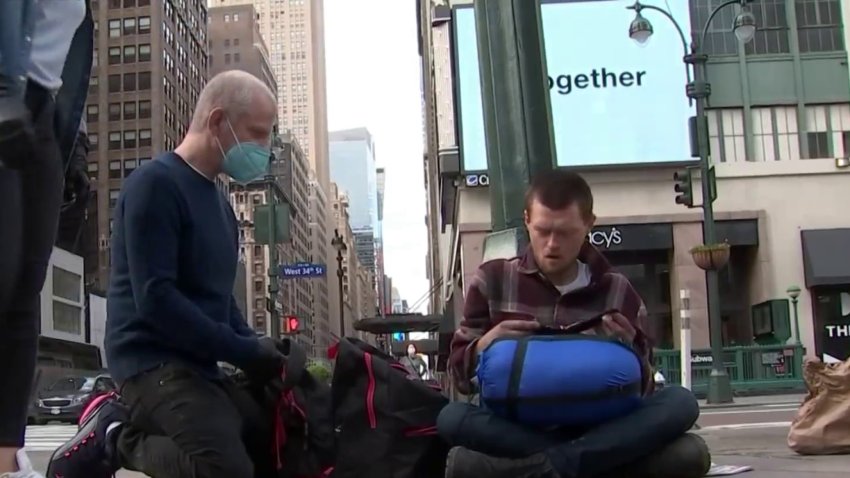Since the start of the pandemic, New Yorkers experiencing homelessness have been placed in hotels across the city. But as Chris Glorioso reports, not everyone is happy about it.
Some concerned New York City residents who live near hotels that are used to house the homeless are fed up and say it's time for them to check out.
Approximately 13,000 homeless adults are living in rooms in dozens of hotels across the city, taken to those locations in an effort to keep shelters safe and socially distanced amid the COVID-19 pandemic.
However, the neighbors living near those hotels say it's their safety that is now being compromised.
"It's the drugs. We see people inebriated, there are registered sex offenders," said Upper West Side resident Alison Morpurgo, a mother of three teenagers. She says that ever since three hotels in the neighborhood filled up with hundreds of people experiencing homelessness, social problems have spilled over onto nearby streets.

Morpurgo is part of a group called Upper West Siders for Safer Streets. It has been collecting accounts and pictures of things like people apparently passed out on sidewalks, slumped over near restaurant tents — even some with hands down their pants, apparently committing lewd acts.
"Sometimes I go running in the morning and I’ll see, frankly, needles on the ground," Morpurgo said.
News
It is not clear if the images gathered by the group are depicting New Yorkers who are living in those homeless hotels, but members say what is clear is that the city's policy isn't working.
"We want to see change. We want to see safer streets, but also we want to see people get the services they need, which clearly we’re not seeing here," Morpurgo said.
Mayor Bill de Blasio's administration said the hotels on the Upper West Side (and throughout the five boroughs) are offering services. At the Lucerne Hotel, on West 79th Street and Amsterdam Avenue, a nonprofit called Project Renewal says it has 50 staff offering counseling, medical and recreation services.
One man who was formerly homeless said he recently left one of the hotels operated by another nonprofit in Queens. He said that no staff where he was placed would check on them, and said he sympathizes with the concerns of hotel neighbors after he witnessed a lack of safety and security around his hotel.

"It was terrible. You walk into the halls, you see guys almost OD-ing on drugs, nobody supervising them. Walk into the bathroom, see guys leaning and just halfway alive," said Salvatore Salomon.
A spokesman for the City’s Department of Homeless Services said it's wrong to assume homeless people are addicts.
"New Yorkers experiencing homelessness are our neighbors – and the notion that they are not welcome in some neighborhoods for any reason is an affront to basic decency. We will not create gated communities within our city," the spokesperson said.
The department said there are 139 commercial hotels being used as shelters citywide, including 63 locations that started housing people experiencing homelessness since the pandemic. City Hall said that the decision to use those hotels, many of which would be empty anyway given the lack of tourism since March, has saved lives.
Morpurgo said that her Upper West Side neighborhood has always been welcoming and has always had homeless shelters, but there is a difference with the current program: No services being offered to actually help the homeless.
"The problem is, it is not helpful to anyone to house the homeless without offering services that are clearly needed based on what we are seeing on the sidewalks," she said.



